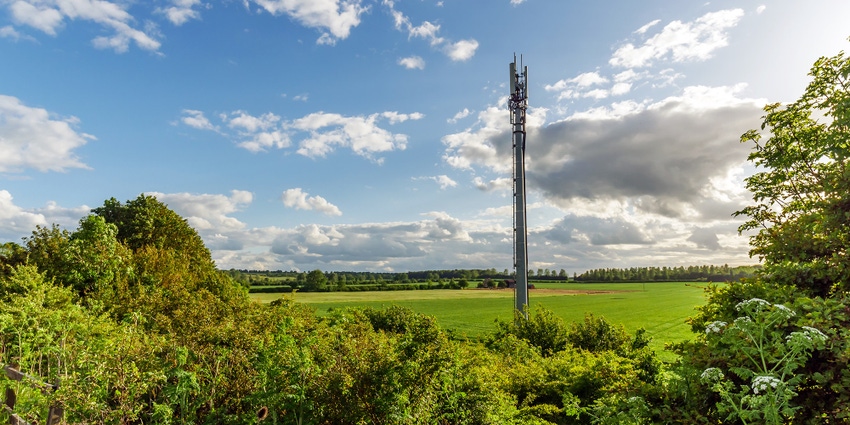VMO2 calls time on 3G
UK operator VMO2 will begin the process of switching off 3G services in 2025, which it says will enable it to expand and upgrade its 4G and 5G footprint and save some energy.
September 7, 2023

UK operator VMO2 will begin the process of switching off 3G services in 2025, which it says will enable it to expand and upgrade its 4G and 5G footprint and save some energy.
3G services will be turned off in phases across the UK, a process which the operator expects to be complete by the end of 2025. VMO2 estimates last year 3G – which launched two decades ago – accounted for less than 4% of all data on its network last year.
2G will be switched off by 2033, but will remain in place to carry calls and texts while the 3G switch off is carried out.
Taking older 3G equipment off the grid will mean mobile spectrum can be reallocated to 4G and 5G services, which as well as being better services are also much more energy efficient, especially 5G.
This of course slots in neatly with company’s various net zero pledges. Apparently that 4% proportion of overall data traffic accounts for 11% of the company’s total energy consumption. 4G and 5G account for 96% of mobile network data traffic, are 10 times more efficient, claims the release.
The vast majority of existing customers won’t need to take any action during this switch off period, we’re told, but the operator has pledged to help those who may still be using 3G phones with additional support. It will also work with consumer groups and charities, including Good Things Foundation, to help manage the transition and make sure customers remain connected.
“3G was once an exciting new development for telecoms providers that brought new opportunities for customers,” said Jeanie York, Chief Technology Officer at VMO2. “But as we continue to evolve our network to provide the best mobile connectivity, it is clear that switching off 3G and focusing our attention and investment on the faster, more reliable and more efficient 4G and 5G services is the right thing to do for our customers, our business and the environment.
“We will begin to switch off 3G in 2025, but between now and then, we will be communicating directly with our customers to explain what this means for them and outline any steps they should take in the next 18 months. While most customers will need to take no action at all, we are committed to supporting everyone with this necessary transition. As this switchover takes place, we will continue to invest heavily in maintaining, upgrading and expanding our 4G and 5G networks to ensure we’re providing the fast and reliable mobile connectivity that our customers depend on.”
Helen Milner, Chief Executive of Good Things Foundation added: “Good Things Foundation has been working with Virgin Media O2 since 2021, when together we set up the National Databank to provide mobile data to low income customers at risk of digital exclusion. I am delighted that we have now been invited to work with the company on its 3G switch-off programme. Our expertise and insights can help deliver Virgin Media O2’s ambition to ensure all its customers, particularly those from vulnerable groups, are fully supported through the transition away from 3G, so their connectivity is safeguarded and maintained.”
Treading lightly with the switch off in terms of the remaining 3G users, by doing things like drafting in Good Things Foundation, is no doubt required if the operator wants to immunise itself from accusations of leaving anyone disconnected, in an age where connectivity seems increasingly considered a basic human right. With such limited numbers of people still using 3G, you’d think the simplest thing to do would be to just post each of them a 4G or 5G handset, but who knows.
The end of 3G is a bit of a milestone in any case. It was a game changer when it came out 20 odd years ago, however retrospectively janky it might later have seemed compared to the refinement of 4G, it was the technology that really brought the concept of mobile internet to life for the world, and as such played a huge part in the evolution of the smartphone market, internet culture, working practices, and even consumerism as a whole.
For the mass market, 3G moved the needle in a way that you can’t really say 5G has, which aside from the energy saving and behind the scenes technical improvements, is still looking for hero feature/killer app/novel use case that your average punter will notice.
Of course, perhaps its simply unfair to expect the same kind of revolutionary step-change with every iteration of mobile connectivity – but try telling the 5G marketing departments that.
Get the latest news straight to your inbox. Register for the Telecoms.com newsletter here.
About the Author(s)
You May Also Like











_1.jpg?width=300&auto=webp&quality=80&disable=upscale)


.png?width=800&auto=webp&quality=80&disable=upscale)